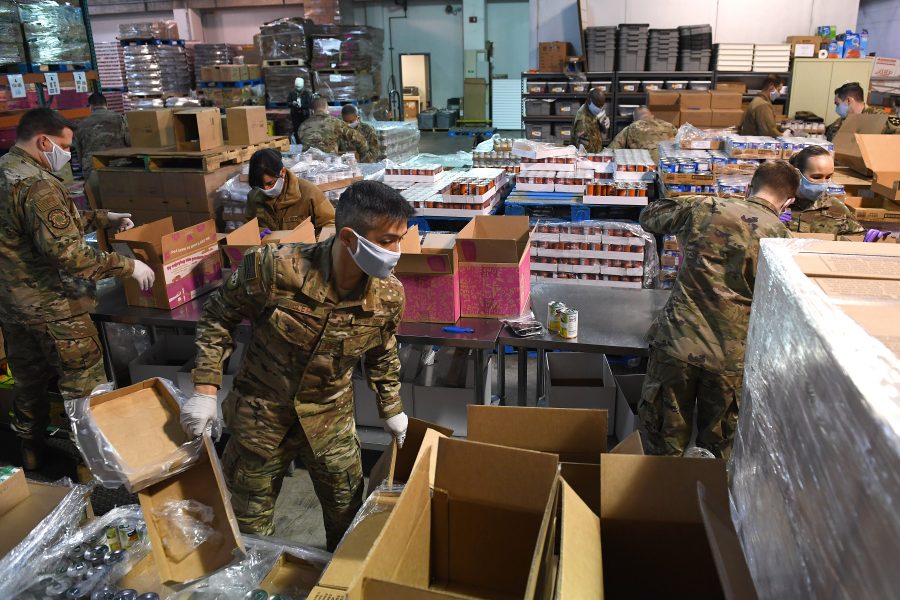President Donald Trump’s decision to greenlight 31-day orders for Guard personnel combating the COVID-19 pandemic is crucial to getting them benefits on par with their Active-duty counterparts, said Maj. Gen. Dawne Deskins, director of manpower and personnel for the National Guard Bureau Joint Staff.
During an April 16 virtual town hall, Deskins said the extension ensures that Guard personnel and qualifying relatives can receive “comprehensive TRICARE coverage.”
Any member of the reserve component who serves on Active duty for 31 days or more is automatically signed up for “Health Care Delivery Plan 001, which is TRICARE Prime for Active Duty sponsors,” NGB spokesman Maj. Rob Perino told Air Force Magazine on April 17.
The extra day of service also entitles them to a different type of housing allowance, Deskins said.
If a Guard member is on orders for 30 days or less and gets “an order modification or assignment extension with a prospective, new Active-duty period of 31 days or more” from the date of that change, they’ll get non-retroactive, “locality-based BAH,” Perino explained. The Guard member’s reserve component housing allowance, known as BAH Reserve Component/Transit, stops the day before their orders change.
Deskins said NGB strives for “benefits parity” for Guard personnel and families.
“We want our Guard members and their families to receive the same benefits when doing the same duties as their Active component or other reserve component members, so we’re very, very happy that we’re moving in this direction for the 31-day orders.”
However, she said, even those who haven’t been called up to battle the virus may be impacted, saying drill weekends, and consequently paychecks, for some personnel have been postponed by the pandemic.
“Two big areas of concern that came up … from our Guard members is a concern about them potentially not having their Servicemembers’ Group Life Insurance or their TRICARE Reserve Select,” she said.
Deskins noted that NGB is exploring how it might be able to employ virtual drilling, but clarified that Guard members’ SGLI will be safe in the meantime.
“Under existing policy, reserve component members do not lose coverage due to non-payment of premiums when they do not receive Active-duty or Inactive-duty pay,” she explained. “That’s critically important, because we want to make sure that they continue to have that benefit and they don’t lose that benefit just because they’re not drilling.”
The TRICARE Reserve Select health insurance plan works a bit differently, though, Deskins explained, since TRS premiums, which equate to “28 percent of the cost of coverage,” can’t legally be waived.
But NGB has stepped in to protect Guard personnel from losing their coverage to COVID-19-related pay interruptions.
“We have worked on the policy side, through OSD [the Office of the Secretary of Defense] so that if members do not make payments, the contractor will not cease their coverage,” she said. “And they will give them up to 90 days of post-crisis if that’s determined once this all ends.”
The town hall was hosted by the COVID-19 Military Support Initiative, an effort being spearheaded by the military service organizations Blue Star Families and the Association of Defense Communities to support U.S. troops, veterans, their families, communities, and states as they confront the new coronavirus pandemic.
